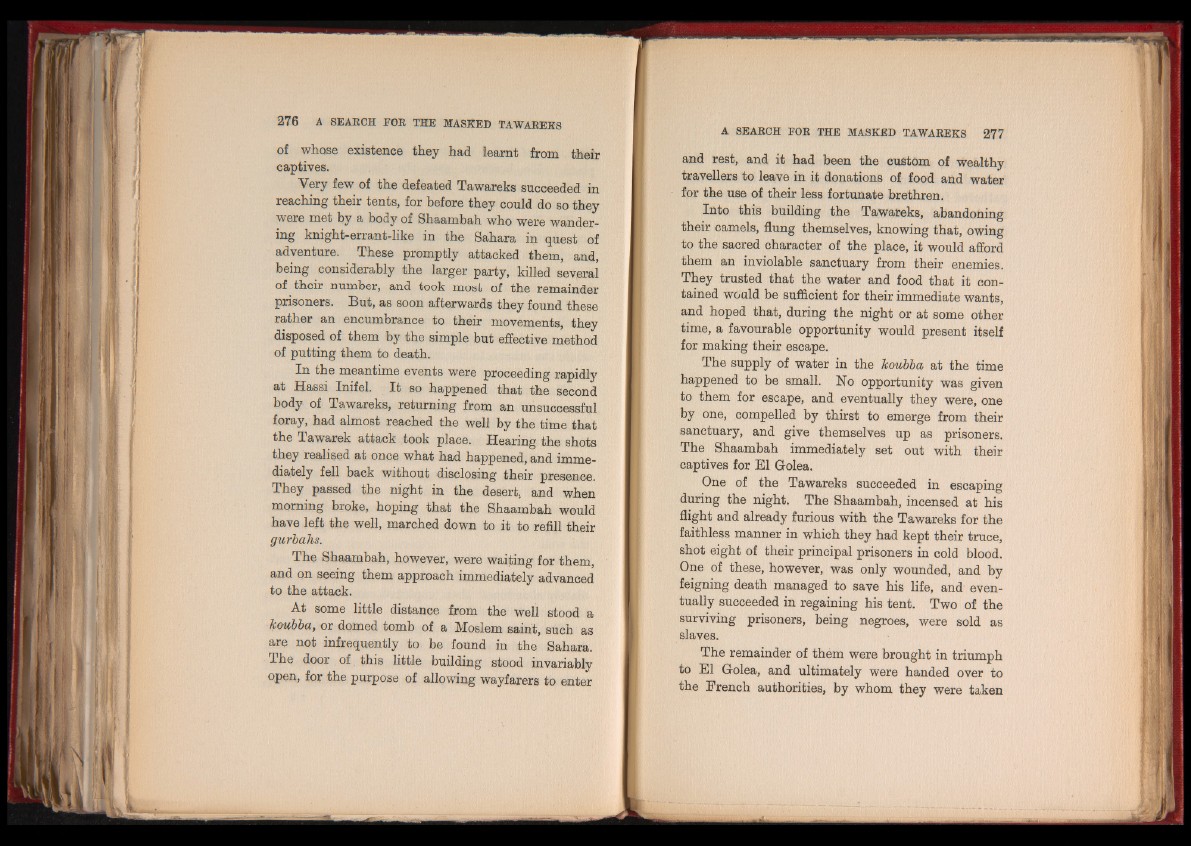
of whose existence they had ieamt from their
captives.
Very few of the defeated Tawareks succeeded in
reaching their tents, for before they could do so they
were met by a body of Shaambah who were wandering
knight-errant-like in the Sahara in quest of
adventure. These promptly attacked them, and,
being considerably the larger party, killed several
of their number, and took most of the remainder
prisoners. But, as soon afterwards they found these
rather an encumbrance to their movements, they
disposed of them by the simple but effective method
of putting them to death.
In the meantime events were proceeding rapidly
at Hassi Inifel. It so happened that the second
body of Tawareks, returning from an unsuccessful
foray, had almost reached the well by the time that
the Tawarek attack took place. Hearing the shots
they realised at once what had happened, and immediately
fell back without disclosing their presence.
They passed the night in the desert, and when
morning broke, hoping that the Shaambah would
have left the well, marched down to it to refill their
gurbahs.
The Shaambah, however, were waiting for them,
and on seeing them approach immediately advanced
to the attack.
At some little distance from the well stood a
Jcoubba, or domed tomb of a Moslem saint, such as
are not infrequently to be found in the Sahara.
The door of this little building stood invariably
open, for the purpose of allowing wayfarers to enter
and rest, and it had been the custom of wealthy
travellers to leave in it donations of food and water
for the use of their less fortunate brethren.
Into this building the Tawareks, abandoning
their camels, flung themselves, knowing that, owing
to the sacred character of the place, it would afford
them an inviolable sanctuary from their enemies.
They trusted that the water and food that it contained
would be sufficient for their immediate wants,
and hoped that, during the night or at some other
time, a favourable opportunity would present itself
for making their escape.
The supply of water in the koubba at the time
happened to be small. No opportunity was given
to them for escape, and eventually they were, one
by one, compelled by thirst to emerge from their
sanctuary, and give themselves up as prisoners.
The Shaambah immediately set out with their
captives for El Grolea.
One of the Tawareks succeeded in escaping
during the night. The Shaambah, incensed at his
flight and already furious with the Tawareks for the
faithless manner in which they had kept their truce,
shot eight of their principal prisoners in cold blood.
One of these, however, was only wounded, and by
feigning death managed to save his life, and eventually
succeeded in regaining his tent. Two of the
surviving prisoners, being negroes, were sold as
slaves.
The remainder of them were brought in triumph
to El G-olea, and ultimately were handed over to
the French authorities, by whom they were taken